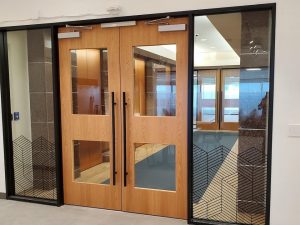Renters typically have to pay an application fee and undergo a credit and background check. However, these costs can be lower during the off-season.
Renting is a viable option for many people, but it comes with cons – especially the risk of moving through no fault of your own. This can be traumatic for some people.
Lower Upfront Costs
Renting an apartment, like those at Classic City Apartments, typically offers fewer up-front expenditures than buying a house. Several expenses, including an application fee, a security deposit, and renter’s insurance, must be considered by renters.
However, a mortgage requires funds for a down payment, house examination, property valuation, closing fees, and mortgage insurance. These costs can amount to tens of thousands of dollars, making house ownership more prohibitive for many.
Tenants don’t have to worry about major upkeep costs, as landlords take care of this. This can be a huge financial benefit for those who want to live in a certain neighborhood but are still deciding whether to commit to owning a house. Instead of putting money aside for repairs, tenants can use this cash to fund other expenses.
More Flexibility
Renting is a wise choice for someone who frequently travels for business or isn’t ready to settle down. If your employment needs it, you can relocate to another apartment or condo without worrying about paying a mortgage while you rent.
When you sign a lease, you typically have to pay a deposit or security fee, often equal to one month’s rent, and pay your first and last months of rent upfront. The landlord or management company also usually needs pay stubs, bank statements, and tax records.
In addition, if the apartment is not rent-stabilized, you could face increased rental prices annually. This is why running the numbers and considering your financial goals before deciding on either choice is important.
Lower Monthly Payments
Renting an apartment provides you with lower monthly payments than buying a home. You’re not paying mortgage insurance, homeowners association fees, property taxes, or maintenance costs.
According to Brick Underground, Independent landlords typically have more wiggle room when negotiating rent prices than larger apartment complexes. They want their tenants to remain in the building, so they’ll be more willing to offer a discount on rent when you show them you’re committed.
Negotiating with a clear, respectful, and calm mindset is key. Have proof of your excellent credit score and a history of on-time payments to support your case for why you should be allowed to keep your current rate for another year or two. And try to negotiate rent in the winter when it’s harder for landlords to find new tenants.
More Amenities
Many apartment buildings tout their amenities, which are nonessential features that make living in a building more enjoyable or productive. Things like a doorman, a laundry room with energy-efficient washers and dryers, or windows that let in plenty of natural light may be considered amenities.
Some tenants may appreciate these additions, depending on their lifestyle. For example, a pool is an asset if you plan to swim every night before bed, while a dishwasher is important if you order takeout for dinner.
Not all amenities are included in the rent; you might need to pay extra for electricity or gas. But that’s something you can research to see how much it costs.
Lower Maintenance Costs
Keeping track of maintenance issues can be difficult when you don’t live in a home. When a problem goes unnoticed, it can quickly become more expensive.
When you rent an apartment, any repairs that need to be made are the landlord’s responsibility. That includes snow removal, sewage, trash removal, and yard care.
This can be a major relief, particularly for those who don’t want to deal with the stress of mortgage payments or the pressure of upkeep. In addition, the lack of maintenance concerns can help save time as tenants don’t need to worry about things like sweeping out their garage or wiping down counters. In many cases, these services are included in the monthly rental cost. This is only sometimes the case for condos and homes, however.






Leave a Reply